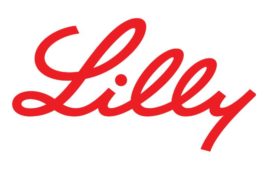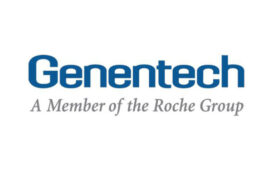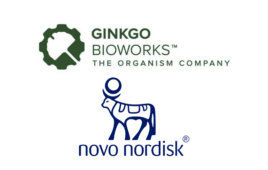
[metamorworks/Adobe Stock]
The pharma industry faces mounting pressures to discover and develop new drugs faster and at lower costs. AI has emerged as a promising tool to help overcome long-standing challenges like high failure rates, lengthy development timelines, and resource inefficiency.
While pharma companies are making big bets on AI, the actual impacts and outcomes of many initiatives remain largely behind the scenes. Still, there are some examples that provide a glimpse into how AI may be shaping the future of drug development and healthcare. Below, discover how 11 Big Pharma companies are using AI to transform the landscape of drug discovery, clinical trials and manufacturing.
-
-
Sanofi partnered with Aily Labs to develop an AI platform called “plai” in 2018, with the goal of using AI for drug discovery, clinical trials and manufacturing. lai aggregates Sanofi’s internal data to support decision making across the drug development process. Sanofi has also partnered with Hillo to adapt its AI technology for connected insulin pens, demonstrating the company’s interest in using AI for both drug development and connected healthcare products.
-
Pfizer has used IBM’s supercomputing and AI since 2020 to develop new drugs like PAXLOVID, an oral COVID-19 treatment approved in 2022. They claim this reduced computational time by 80-90%, stating that the technology helped the team design the drug in four months. The Big Pharma has also inked a deal with CytoReason, which has created an AI model of the immune system.
-
Novartis is employing AI to improve drug discovery and boost efficiency. The firm has more than 150 ongoing projects applying AI across the business. Novartis partnered with Microsoft and NVIDIA, and aims to scale AI over a decade to improve access, costs, and health outcomes, though outcomes so far are unclear.
-
Janssen is exploring AI for drug discovery, clinical trials, diagnosing diseases and manufacturing, as sister site Drug Discovery & Development noted. Its Trials360.ai service optimizes trial design, improving care and outcomes. With more than 100 AI projects, Janssen is adopting a scalable approach to test and deploy AI.
-
AstraZeneca partnered with Oncoshot in 2021 to match patients to trials using AI and BenevolentAI to identify targets, though the timescale and outcomes of these partnerships are unknown. The latter partnership has proven successful with AstraZeneca selecting five targets to enter its portfolio. Two are in chronic kidney disease (CKD) and three in idiopathic pulmonary fibrosis (IPF). Since then, the companies have expanded the partnership to systemic lupus erythematosus and heart failure.
-
Bristol Myers Squibb has partnered with Exscientia to use AI for small molecule drug discovery. The collaboration will use Exscientia’s AI platforms to accelerate the discovery of small molecule drug candidates across multiple disease areas, including oncology and immunology. By combining Exscientia’s AI expertise with BMS’s experience in drug development, the partners aim to speed up the early stages of the drug pipeline.
-
Bayer has also partnered with Exscientia to explore AI for small molecule drug discovery. Exscientia will collaborate with Bayer on three initial projects focused on cardiovascular disease and oncology targets. Under the agreement, Exscientia may receive up to €240 million in payments, including upfront research funding, clinical milestones, and near-term milestones. The partnership aims to combine Exscientia’s AI platform with Bayer’s expertise in drug development to speed up the discovery of new small molecule drug candidates for some of Bayer’s key disease areas of focus.
-
Merck partnered with BenchSci, Atomwise, C4 Therapeutics and ACMED on various AI drug discovery and development initiatives.
-
GSK has partnered with Cloud Pharmaceuticals and Insilico Medicine to utilize their AI platforms for target identification, drug design, and lead generation. GSK also has an Advantage AI program to explore AI partnerships.
-
Roche partnered with Recursion Pharmaceuticals to use their AI platforms for drug discovery and development. After announcing more than 25 AI partnerships, Roche established an AI hub.
- Lilly, a $420 billion Big Pharma, recently told Insider it aims to grow its ‘digital worker-equivalent workforce’ to 2.4 million hours, or 274 years of human work, by year-end through more than 100 AI projects. CEO David Ricks noted that he sees AI augmenting human productivity, automating regulatory processes, and enabling new drug discovery constructs chemists wouldn’t visualize alone. Ricks expects AI to ‘massively change the productivity of the workplace,’ freeing people for more valuable work.
-





Great article!
Thank you for keeping us informed!